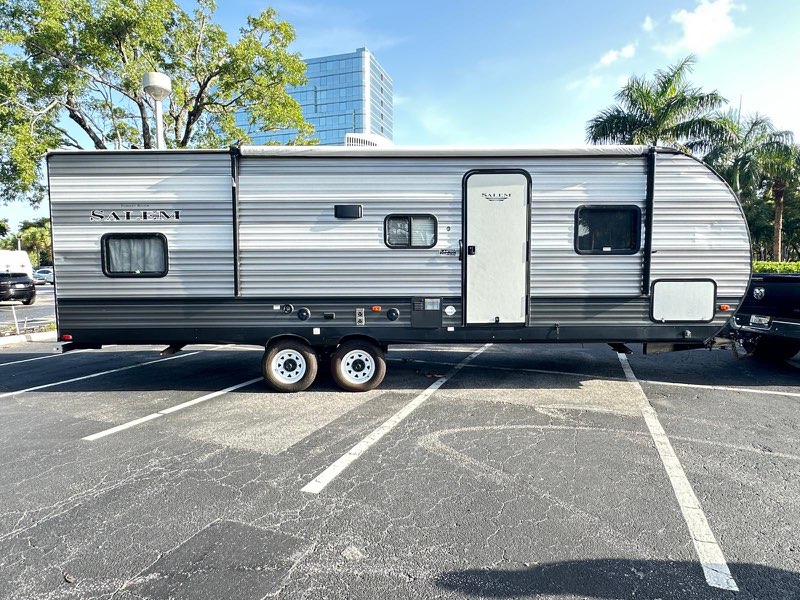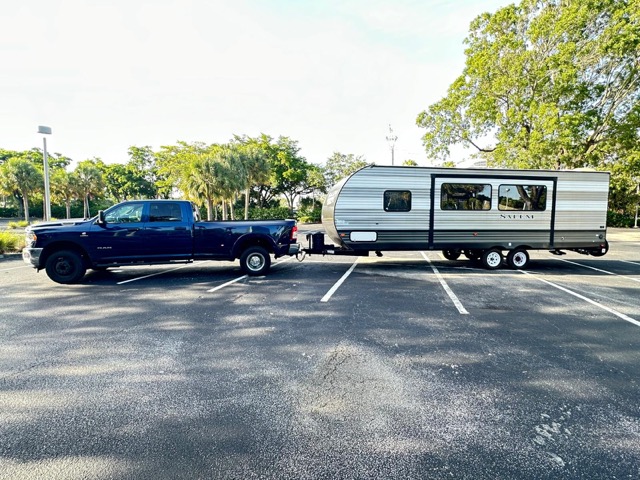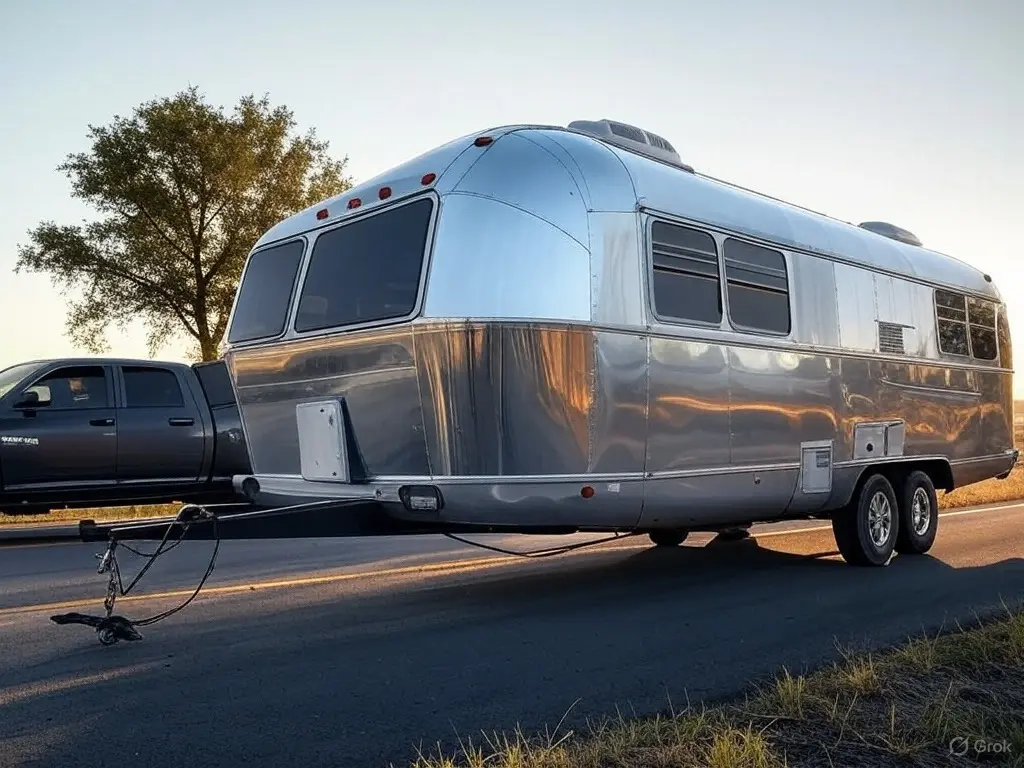Travel Trailer Transport :

Travel Trailer Transport is a big part of this industry. Either being much cheaper to tow a roadworthy unit vs hauling on a trailer, or units that are too large and would be cost prohibitive to load on a deck. Travel trailers range in size but are all bumper pull ball hitches but can be from 2in to 2 5/16in in sizes.
Guide to Travel Trailer Transport:
Travel Trailer Transport: Your Comprehensive Guide
Introduction
Travel trailers, those cozy mobile homes on wheels, offer an unparalleled way to explore the world while carrying your comfort with you. However, moving these trailers from one place to another can be a logistical puzzle. This guide dives into the intricacies of travel trailer transport, providing you with insights on costs, preparations, and what to expect during the journey.
Understanding the Basics of Travel Trailer Transport
What Influences the Cost?
- Distance: The farther you’re going, the more you’ll pay. Typically, transport companies charge by the mile, but longer distances might offer a per-mile rate reduction due to economies of scale.
- Size and Weight: Larger, heavier trailers cost more to transport due to the need for specialized equipment or additional fuel.
- Transport Type: You can opt for door-to-door service or terminal-to-terminal. Door-to-door, while more convenient, is pricier.
- Time Sensitivity: Expedited shipping will increase costs but can be necessary for timely events or seasonal use.
Average Costs
Based on industry trends up to 2024, expect:
- Short Distances (0 – 799 miles): Around $3 to $4 per mile, with an average transit time of 1-4 days.
- Longer Distances: Costs might drop to $1.50 to $2 per mile for over 1000 miles, reflecting bulk transport efficiencies.
Preparing Your Travel Trailer for Transport
- Inspection: Check for any existing damage and document it. This protects you from liability claims post-transport.
- Secure Belongings: Remove or secure all items inside the trailer. Loose items can become projectiles during transport.
- Tires and Brakes: Ensure these are in good condition. Transport companies might refuse transport if they’re not.
- Weight Distribution: If you’re towing yourself, remember, at least 60% of the load should be at the front of the trailer for safety.


The Transport Process: Booking Your Transport
- Quotes: Use online calculators or contact transport services directly for quotes. Provide accurate details for the most precise estimate.
- Booking: Once you decide, book with a reputable company. Ensure they offer insurance for your trailer.
During Transport
- Communication: Stay in touch with the transport company. They’ll update you on the trailer’s progress.
- Delivery: Upon arrival, inspect your trailer immediately. Any new damage should be reported before the transporter leaves.
Special Considerations
- Off-Roading: If your adventure involves off-road travel, ensure your trailer’s transport method can handle such conditions.
- Environmental Impact: Consider the aerodynamic efficiency of your trailer. Contrary to common belief, weight isn’t always the primary factor affecting fuel efficiency; aerodynamics play a significant role.
Transporting your travel trailer, whether for a new adventure or a change of scenery, involves careful planning and consideration of various factors. By understanding the costs, preparing your trailer correctly, and choosing the right transport service, you ensure your journey is as smooth as the destinations you’re heading to. Remember, the key to a successful transport lies in preparation, communication, and choosing the right partner for the journey.

